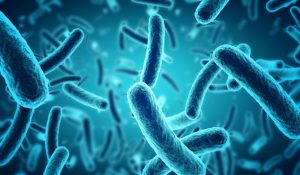
Source: foxnews.com
The minute we hear the word bacteria and germs, the first thing that will come to our mind is that they are the culprit for our diseases. What most of us are not aware of is that our body has an army of “good” and “bad” bacteria.
Probiotics are the good bacteria in our bodies. They are termed as good and helpful bacteria because we need the live bacteria and yeasts to ensure the health of our digestive systems.
Discovery Of Probiotics
Probiotic comes from the Greek word “pro” which means promoting, and “biotic” means life. In the early 20th Century, Elie Metchnikoff (father of probiotics), a Russian Scientist, discovered probiotics. While in a rural area in Bulgaria, he noticed that their population lived longer compared to others despite severe poverty and with a climate that is hard for people and animals to live in. He found out that the people are drinking fermented yogurt drink daily, and the rest is history.
Where Can We Find Probiotics?

Source: aliass.org
The doctors will often suggest that we take food with live bacteria to help our digestive problems. Probiotics are available as dietary supplements, but there are also some food and beverages that contain probiotics.
Fermented foods undergo a process where the shelf life of perishable foods is extended, slowing decomposition process induced by organisms which change carbohydrates to organic acids. This lactic (organic) acid supplies the bacteria which enhances the health benefits of the food.
- Kefir – fermented milk drink contains both bacteria and yeast. It can ease IBS symptoms of bloating and digestive distress.
- Kimchi – fermented vegetables, contains many bacteria and is said to be anticancer and anti-obesity. It aids in constipation and promotes a healthy colon. It lowers cholesterol and has anti-aging and antioxidative properties. It boosts brain, immune system, and skin health.
- Yogurt – which is very well known to most of us. It has positive effects on the gut and is considered to help reduce risks of gastrointestinal diseases and improves lactose intolerance. It is beneficial to enhance respiratory diseases and promote dental and bone health.
What Can Probiotics Do To Our GI Tract?
The live microorganisms help prevent and treat some diseases providing us with a healthy digestive tract and immune system. A healthy balance of helpful and harmful bacteria is needed to protect our digestive tracts, but sometimes the balance is lost due to poor diet, stress, lack of sleep, overuse of antibiotics and other drugs, and some other environmental factors.
A healthy digestive tract sifts out and removes things that are damaging – toxins, chemicals, harmful bacteria, and other waste materials.
The healthy balance of bacteria aids in regulating the GI motility and maintain gut barrier function.
Probiotics are beneficial for abdominal pain, infectious and antibiotic-related diarrhea, IBS, bloating, ulcerative colitis, H. pylori infection, necrotizing enterocolitis, and non-alcoholic fatty liver disease.
Side Issue

Source: momjunction.com
Everything we take into our body should be monitored. Anything in excess can also bring us harm. Probiotics should be taken with caution, whether in supplement or fermented food form, especially, for children, pregnant women, some people with underlying health conditions, and elderly.
It will always be best to seek your doctor’s advice first.
A Well-Balanced Probiotics Benefits Our Wellbeing
Our body needs a well-balanced helpful (good) and harmful (bad) bacteria for obtaining optimal health. Imbalance can lead to diseases of the intestinal tract and can also cause obesity and diabetes.
A healthy immune system is our protection against many ailments. Once it doesn’t function properly, we can suffer from many infections and diseases.
It’s not yet too late. We can still bring back the balance in our gut anytime, and prevent diseases from taking over our body.